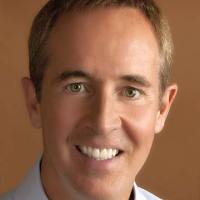
Under Sam Adeyemi’s leadership, Daystar Christian Centre grew from a handful of people to more than 25,000 people weekly – with highly recognized community impact projects. The author of numerous best-selling books, his television programs reach viewers on all continents. Adeyemi founded Daystar Leadership Academy, which is dedicated to releasing a new generation of leaders who will serve as catalysts in the transformation of Africa and the world.
- In leadership you don’t attract what you want you attract what you are
- The leadership dynamic works when there is alignment between the sense of identity of the leader and that of the followers
- If a group of robbers had the chance to elect a police man would they? No. They would elect a more sophisticated and better robber.
- Leadership is about helping people move from robbers to policemen, helping people become someone they have never been before.
- Unleashing the potential of followers, especially those who seem less than ideal is the miracle of leadership.
- The transformation that will show up in your people’s lives is directly connected to your leadership.
- Real and sustainable change in someone’s’ life begins when there is a change in their sense of identity
- One of the greatest gifts you can give someone is a new belief in who they are and could be
- Sometimes what you are used to is not what you belong to
- What you believe is where you belong
- The heart of the matter is a matter of the heart
- Most people are sabotaged by self-limiting beliefs
- Changing people from the inside out is truly transformational
- Jesus – See with their eyes, hear with their ears and understand in their hearts they will turn and I will heal them…
- Whatever people SEE and HEAR over time will enter their HEARTS and put their lives on autopilot
To change your followers from the inside out you need to change what they see and hear
#1 Describe your vision for the organization over and over again
- vision = the ability to see people, places and things not just the way they are but the way they could be
- The language you use to describe people matters infinitely
- It’s not because the leader is special that the followers are there…it’s because the followers are special that the leader is there
#2 Set up a structured training system
- Is your training system built to develop the ideal leader for your organization?
- Training creates consistency in knowledge and skills across the organization
#3 Model transformation. People try to reach a standard they can see
- follow me as I follow Jesus
#4 Reinvent yourself over and over. You die at one level to evolve to another
- To be someone you’ve never been means you need to let go of what you’ve done in the past, which means you are going to have to get past your insecurities.
- Many leaders are stranded at one level of success because their capacity has been blunted by their own success.
- No one should be around you for a year or longer without transformation in their lives.
- You can do more than you are doing right now.
Posted in Leadership








